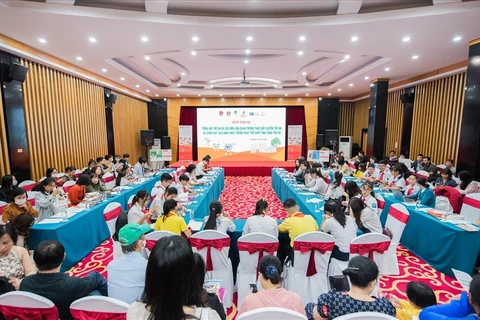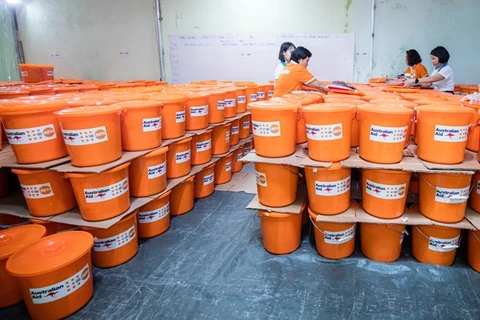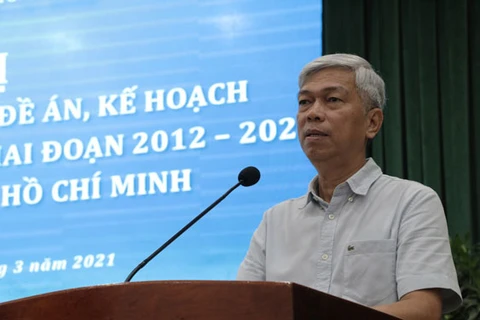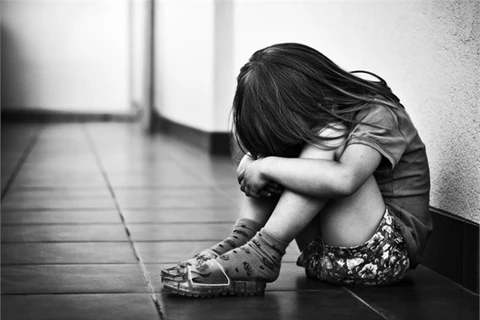Hanoi (VNA) – Standing member of the National Assembly (NA) Committee for Social Affairs Le Thi Nguyet and standing member of the NA Committee for External Relations Le Thu Ha attended a virtual meeting of the Inter-Parliamentary Union (IPU)’s Standing Committee on Democracy and Human Rights on May 18.
The meeting, held in the framework of the 142nd General Assembly of the IPU, focused on global laws against sexual exploitation and abuse of children on the Internet space.
At the meeting, Vietnamese representatives said that in order to minimise online sexual exploitation and abuse against children, Vietnam needs to complete its system of legal documents in the field. The Government should issue legal documents on the implementation of measures to protect children on the Internet environment, along with policies to support disadvantaged children and those from ethnic-minority-inhabited areas and poor families, while promptly releasing decrees guiding the implementation of the Law on Cyber Security and applying measures to timely prevent toxic information on the Internet that may lead to the risk of child abuse.
At the same time, Vietnam will strengthen the coordination among the Ministry of Education and Training, Ministry of Information and Communications, Ministry of Public Security, Ministry of Labour, Invalids and Social Affairs, Ministry of Culture, Sports and Tourism, Ministry of Justice, Vietnam Fatherland Front Central Committee and its member organisations to conduct education and communication activities aiming at instructing, managing, inspecting and supervising the use of the Internet space in a safe, healthy and friendly manner, they said.
The Vietnamese representatives also underscored the need for relevant agencies to build long-term strategies and programmes on child protection on the Internet environment, increase international cooperation in the field, and assign specific agencies to coordinate actions among relevant ministries and agencies as well as public-private cooperation in the field.
Besides, relevant agencies should make sure that children can access information and have their image and private information protected, while managing, instructing and supporting them in using the internet and expressing their ideas and aspiration.
The representatives also stressed the need to review the current legal system regarding the handling of child abuse criminals to fill loopholes in the field, while supplementing mechanisms to address newly-emerging violations.
Participants in the meeting held that the digital world has brought about many democracy and economic opportunities, but also made children more vulnerable to online exploitation and abuse.
In September 2019, the United Nations (UN) Committee on the Rights of the Child issued guidelines on combating child sexual exploitation and the sale of children in the digital age. The committee noted that despite some progress, there are still legal loopholes at national level that need fixing to deal with the problem.
The COVID-19 pandemic has even increased the online risks for children due to the rising social isolation and economic instability, it said.
Participants proposed that the committee’s resolution should concentrate on the methods that parliaments can apply to promote and reinforce the legal system at national level to protect children against risks of sexual abuse on the Internet space.
They shared their viewpoints on effective measures in improving law enforcement and the use of technology and big data in identifying those conducting sexual exploitation and abuse against children./.
The meeting, held in the framework of the 142nd General Assembly of the IPU, focused on global laws against sexual exploitation and abuse of children on the Internet space.
At the meeting, Vietnamese representatives said that in order to minimise online sexual exploitation and abuse against children, Vietnam needs to complete its system of legal documents in the field. The Government should issue legal documents on the implementation of measures to protect children on the Internet environment, along with policies to support disadvantaged children and those from ethnic-minority-inhabited areas and poor families, while promptly releasing decrees guiding the implementation of the Law on Cyber Security and applying measures to timely prevent toxic information on the Internet that may lead to the risk of child abuse.
At the same time, Vietnam will strengthen the coordination among the Ministry of Education and Training, Ministry of Information and Communications, Ministry of Public Security, Ministry of Labour, Invalids and Social Affairs, Ministry of Culture, Sports and Tourism, Ministry of Justice, Vietnam Fatherland Front Central Committee and its member organisations to conduct education and communication activities aiming at instructing, managing, inspecting and supervising the use of the Internet space in a safe, healthy and friendly manner, they said.
The Vietnamese representatives also underscored the need for relevant agencies to build long-term strategies and programmes on child protection on the Internet environment, increase international cooperation in the field, and assign specific agencies to coordinate actions among relevant ministries and agencies as well as public-private cooperation in the field.
Besides, relevant agencies should make sure that children can access information and have their image and private information protected, while managing, instructing and supporting them in using the internet and expressing their ideas and aspiration.
The representatives also stressed the need to review the current legal system regarding the handling of child abuse criminals to fill loopholes in the field, while supplementing mechanisms to address newly-emerging violations.
Participants in the meeting held that the digital world has brought about many democracy and economic opportunities, but also made children more vulnerable to online exploitation and abuse.
In September 2019, the United Nations (UN) Committee on the Rights of the Child issued guidelines on combating child sexual exploitation and the sale of children in the digital age. The committee noted that despite some progress, there are still legal loopholes at national level that need fixing to deal with the problem.
The COVID-19 pandemic has even increased the online risks for children due to the rising social isolation and economic instability, it said.
Participants proposed that the committee’s resolution should concentrate on the methods that parliaments can apply to promote and reinforce the legal system at national level to protect children against risks of sexual abuse on the Internet space.
They shared their viewpoints on effective measures in improving law enforcement and the use of technology and big data in identifying those conducting sexual exploitation and abuse against children./.
VNA

























